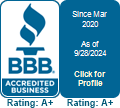
Steps to Succeed in a Debt Settlement Program and Unlock Your Financial Freedom
Overwhelming debt can feel like an uphill battle, but you are not alone. As of September 2024, U.S. household debt has reached a staggering $17.9 trillion. With rising interest rates and inflation putting additional pressure on budgets, many individuals are exploring debt settlement programs to regain control of their finances.
Debt settlement is not just about reducing what you owe—it is about taking the first step toward financial empowerment. But how do you ensure success in such a program? Whether you are considering debt settlement or are already enrolled, following the appropriate steps can maximize your chances of achieving financial freedom.
Understanding Debt Settlement: The Basics
Debt settlement is a process where you negotiate with creditors to pay off a reduced portion of your total debt, often through a one-time lump-sum payment. It’s a structured program designed to help individuals struggling with overwhelming debt. While it can temporarily impact your credit score, the long-term benefits often outweigh the drawbacks, including reduced debt and a fresh financial start.
Steps to Succeed in a Debt Settlement Program
1. Educate Yourself About the Process
Success begins with understanding. Knowing what to expect before you start a debt settlement program ensures you are ready for each step of the process.
To prepare:
- Research the pros and cons to determine if it is right for your financial situation.
- Inquire about fees, timelines, and expected outcomes to ensure no surprises.
- Remember that debt settlement is not an instant fix—it requires patience and a clear understanding of your responsibilities.
2. Work with a Reputable Debt Settlement Company
The company you choose to guide you through the debt settlement program plays a pivotal role in your success. A trustworthy and ethical provider will act as your advocate, negotiate effectively with creditors, and provide full transparency throughout the process.
Here’s how to find a reputable debt settlement company:
- Look for accreditations such as a member of the American Fair Credit Council (AFCC) or other regulatory bodies.
- Check reviews from reliable sources like the Better Business Bureau (BBB) or Trustpilot to assess the company’s track record.
- Ensure the company is upfront about fees and does not make unrealistic promises, such as guaranteeing specific settlement amounts.
Choosing the right company ensures your program is built on a solid foundation, making the process smoother and more efficient.
3. Commit to a Realistic Budget
One of the most critical aspects of succeeding in a debt settlement program is staying consistent with your monthly payments. Since these payments fund settlements with creditors, missing even one can jeopardize your progress.
To create a successful budget:
- Evaluate your income alongside necessary expenses such as rent, utilities, and groceries.
- Look for expenses you can reduce, such as eating out, subscription services, or leisure activities.
- Allocate funds toward your settlement account and stick to this plan no matter what.
Budgeting tools or apps like Mint, YNAB (You Need a Budget), or a simple spreadsheet can help you track your expenses and stay on top of your payments.
Pro Tip: Small lifestyle changes can lead to significant savings. For example, cutting back on dining out from three times a week to once could save $200 per month—money that can go directly into your settlement fund.
Budgeting may feel restrictive when you start, but it’s a small sacrifice for the financial freedom you’ll gain.
What’s Next?
Building on a solid foundation, here are additional strategies to ensure your debt settlement journey stays on track and leads to success.
4. Stay Organized and Keep Detailed Records
Staying on top of your paperwork and communication is crucial for ensuring your debt settlement program runs smoothly.
Steps to Stay Organized:
- Keep copies of all creditor correspondence and agreements.
- Use a dedicated folder or digital tool to store important documents, such as account statements, payment confirmations, and program agreements.
- Track deadlines for payments to avoid delays that could disrupt your progress.
Being organized will help you stay on track and provide proof of agreements in case of disputes with creditors.
5. Build an Emergency Fund
Unexpected expenses, such as medical bills or car repairs, can derail your progress in a debt settlement program if you’re not prepared. Building a small emergency fund can act as a financial buffer.
How to Build an Emergency Fund While in Debt Settlement:
- Start small by saving $500 to $1,000 in a separate account.
- Set aside a portion of any windfalls, such as tax refunds, bonuses, or gifts, for emergencies.
- Look for small occasions to save,such as skipping takeout or canceling unused subscriptions.
Having even a modest emergency fund can help you avoid the need to take on new debt during the program.
6. Communicate Regularly with Your Debt Settlement Company
Open communication with your debt settlement provider is the key to ensuring a smooth process. They need to be informed about any changes in your financial situation that could impact your ability to make payments.
What to Communicate to Your Provider:
- Income changes due to a job loss, pay cut, or other circumstances.
- When you receive a lump sum or windfall, that could accelerate the settlement process.
- Any creditor communications you receive directly (some creditors may bypass the provider and contact you).
Clear communication can help your provider adjust the program and negotiate more effectively with creditors.
7. Avoid Taking on New Debt
It is essential to avoid taking on additional debt while enrolled in a debt settlement program, as it can undermine your progress.
Tips to Stay Debt-Free During the Program:
- Rely on your budget and emergency fund to cover unexpected expenses.
- Opt for cash or a debit card for daily spending rather than depending on credit cards.
- Postpone major purchases until after you have completed the program.
Staying disciplined during the settlement process is key to achieving your financial goals.
8. Plan for Life After Debt Settlement
Debt settlement is not the end of your financial journey—it is the beginning of a stronger monetary future. Once you have completed the program, it is time to rebuild your financial foundation.
Steps to Rebuild After Debt Settlement:
- Check your credit report for accuracy and dispute any errors related to settled debts.
- Work to improve your credit score by paying your bills on time and maintaining a low credit utilization ratio.
- Set new financial goals, such as saving for a house, building a larger emergency fund, or investing for the future.
Completing a debt settlement program is a significant milestone, and planning for what comes next ensures you will not fall back into the debt cycle.
Conclusion
Debt settlement is a powerful tool for regaining control over your finances, but success depends on preparation, discipline, and staying committed to the process. You can unlock the financial freedom you deserve by following the right strategies.
Don’t wait—contact Royal Debt Relief today to take the first step toward a debt-free future!


